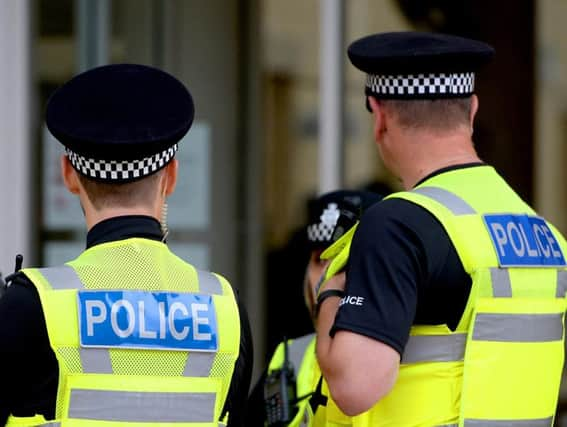Getting away with it: Wigan criminals escape prosecution for serious offences


Since 2014, police forces have resolved more than 400,000 crimes with a community resolution (CR), an out of court disposal which does not appear on a criminal record or standard DBS check and which will not count as a conviction.
They were designed to tackle less serious offending and anti-social behaviour, but concerns have been raised that they are being used for more serious crimes.
Advertisement
Hide AdAdvertisement
Hide AdAn investigation has revealed a total of 34,736 CRs were made by Greater Manchester Police between 2014-15 and 2017-18, accounting for three per cent of outcomes.
Wigan is one of 10 divisions in GMP, meaning that many of these offenders will be local to the borough.
These have been given for offences including robbery, criminal damage, drugs, weapons possession, sex offences and violent crimes.
Over the four years, the force made six CRs for kidnapping, two for sexual grooming and three for child abduction.
Advertisement
Hide AdAdvertisement
Hide AdThere were at least 12 CRs for arson endangering life, 12 for perverting the course of justice, 24 for firearms possession and 50 for possession of an article with a blade or point.
The use of CRs has dropped over the four years, with 9,850 in 2014-15, accounting for five per cent of recorded outcomes, compared to 6,449 in 2017-18, which was two per cent.
Nationally, out of more than 15 million crime outcomes recorded, some 449,000 were community resolutions, representing three per cent of the outcomes.
In response to the findings, some forces highlighted cases where CRs were deemed appropriate for serious crimes - such as child exploitation cases that relate to youngsters “sexting” each other or for sex offences to teenagers engaging in sexual activity with each other. Use of CRs has dropped since 2015 after the House of Commons’ home affairs committee published a report suggesting around 30 per cent of out of court disposals previously recorded may have been inappropriately issued.
Advertisement
Hide AdAdvertisement
Hide AdGuidance suggests they can be used, with victims’ consent, when offenders admit responsibility and agree to make amends. Restorative justice techniques can be included.
GMP Assistant Chief Constable Wasim Chaudhry said: “When dealing with criminality, community resolutions can be an effective method of dealing with some offences and can empower some victims when they believe that formal action is not the route that they wish to take.
“Community resolution, as defined by the Home Office, can incorporate a wide spectrum of activities, including restorative justice. However we cannot assume that every community resolution has incorporated the use of restorative justice when many have not.
"Restorative justice is a proven process in the criminal justice system even when applied to some difficult and challenging crimes, and it’s important to stress that it can be immensely beneficial to victims.
Advertisement
Hide AdAdvertisement
Hide Ad"It can support them as they make sense of what has happened to them and try to move on with their lives. “It gives victims the chance to meet or communicate with their offenders to explain the real impact of the crime – it empowers victims by giving them a voice and provides them with the outcomes they need to recover. It also holds offenders to account for what they have done and helps them to take responsibility and make amends.
“The community resolution process is only used following discussions and agreement with the victim; is carried out by trained professionals and conducted in consultation with relevant support services.”
Concerns have been raised about whether CRs are an appropriate way to deal with more serious crimes. A spokesman for charity Victim Support said: “Community resolutions can be effective for dealing with low-level offences, as long as the views of the victims have been firmly taken into account. They can result in a quick outcome for the victim and give them closure following the crime.
“However, the fact that they are being used in cases where a serious offence has been committed, such as a sexual offence, is seriously concerning.
Advertisement
Hide AdAdvertisement
Hide Ad“It is wholly inappropriate to use them in these cases as it means that victims are denied the justice they deserve, and the public could be put at risk if violent and sexual offenders are not receiving a criminal record.”